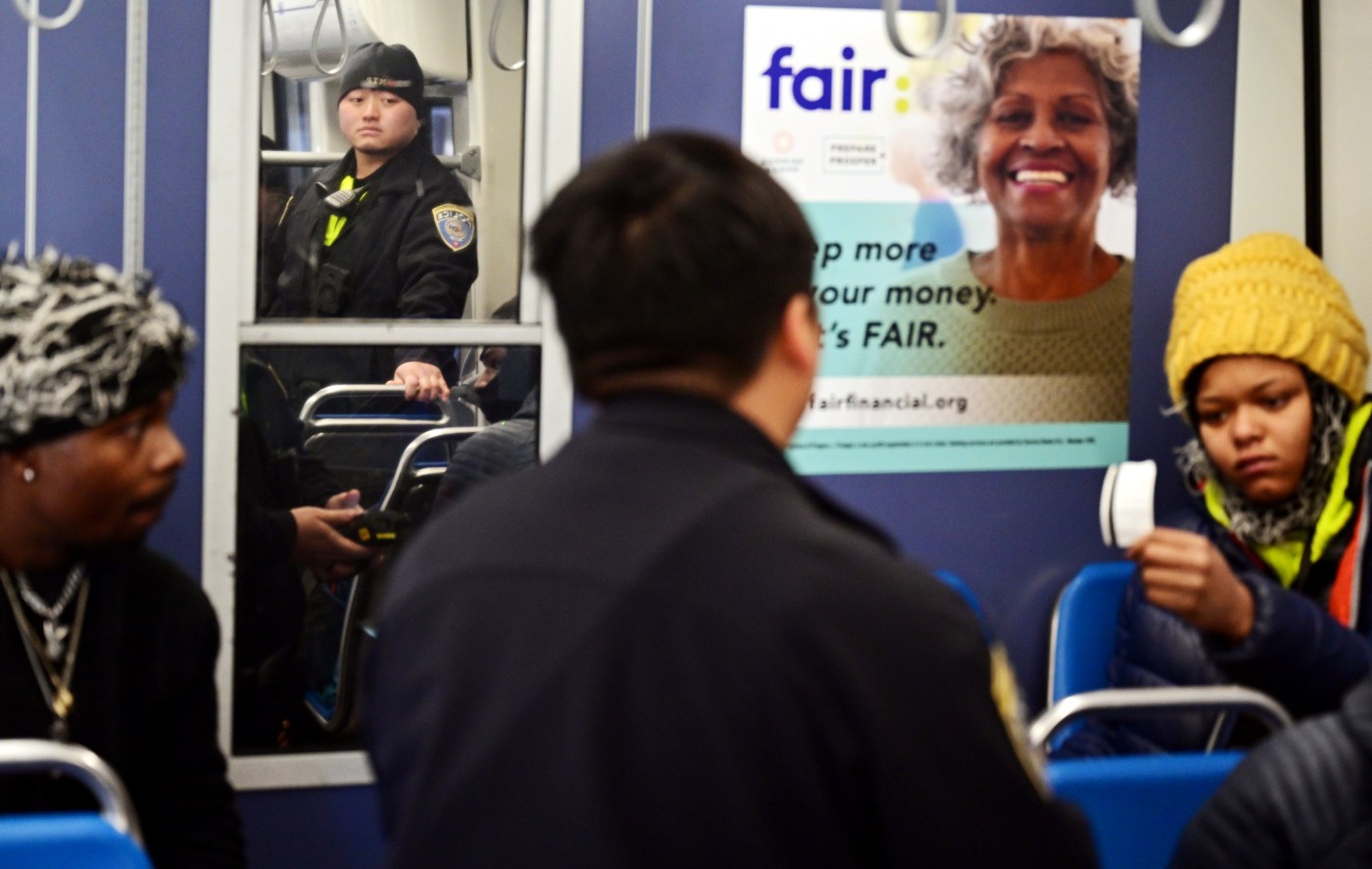
Metro Transit reports crime down, ridership up, with work ‘far from over’
Metro Transit officials said Tuesday that crime is down nearly 14 percent this year compared to the same period last year.
And ridership is up 9 percent in the first half of the year versus the same time last year.
Still, there have been high-profile cases of violence. Three men were charged last month with fatally shooting a 23-year-old man at the Green Line’s Dale Street platform in St. Paul in May.
On July 27, a Saturday afternoon, a man was shot and wounded and robbed of his e-bike at a St. Paul bus shelter at Snelling Avenue and Spruce Tree Drive, a block from University Avenue. The investigation remains active and the victim is in stable condition, according to Metro Transit police.
“The trends we’re seeing are encouraging, but our work is far from over,” Metropolitan Council Charlie Zelle said in a Tuesday statement. “We are committed to maintaining a transit system that makes people feel safe and confident in their surroundings.”
Metro Transit crime reports are down 17.5 percent in the second quarter of this year, compared to last year’s second quarter.
Seven serious crime categories — including homicide, sex offenses, robbery and assault — are down 18.4 percent (266 reports in this year’s second quarter vs. 326 in last year’s second quarter), said Metro Transit Police Chief Ernest Morales III. Other crime categories dropped 37 percent (579 reports in this year’s second quarter vs. 924 in last year’s second quarter).
Safety and security plan
The Metropolitan Council, of which Metro Transit is a service, endorsed in June 2022 Metro Transit’s Safety and Security Action Plan with more than 40 action items. Metro Transit has been providing quarterly updates.
“One core focus of our work is improving official presence on our system by building multiple layers of presence,” said Metro Transit General Manager Lesley Kandaras on Tuesday. “… The Transit Rider Investment Program is contributing to that overall effort to build up those layers of presence on transit.”
Metro Transit rolled out the Transit Rider Investment Program, or TRIP agents, on the Green and Blue lines in February. They’re civilians who inspect fares and issue administrative citations for nonpayment of fares, and remind passengers about rules against smoking, loud music and other inappropriate behavior that have dogged efforts to lure some passengers back to the trains.
There are currently about 28 TRIP agents, and Kandaras said they anticipate hiring an additional 22 who will start training in September.
Metro Transit is continuing to build its “Take Pride in Your Ride” campaign, which they launched earlier this year “to foster respectful culture for riding on transit, and really reminding people that there are rules for riding,” Kandaras said.
The intent in the beginning was to target smoking because it’s one of the top complaints that Metro Transit receives from riders and employees. They’ve expanded to littering and this month they’re launching a new focus on not holding doors on light-rail trains — “this is another frequent complaint we receive that people are holding up the train when they hold doors open for others,” Kandaras said.
From April through June, Metro Transit police documented 397 instances of smoking-, drug-, and alcohol-related offenses, a 50 percent increase compared to the same time last year. Metro Transit said that was primarily due to a targeted push to combat onboard smoking.
The work Metro Transit is doing is shaped by rider feedback and they’ll have six more listening sessions this month. Details can be found at metrotransit.org/listening-sessions-tour-2.
Ridership up
Metro Transit provided nearly 23.5 million rides between January and June, up about 9 percent from the same period last year, and has an average weekday ridership of more than 143,000 rides.
Before the COVID-19 pandemic, there were 77.9 million rides throughout 2019, according to Metro Transit data.
Metro Transit has hired more than 200 bus and train operators so far this year. Quarterly service changes are taking effect Aug. 17 and Metro Transit will be able to increase Green and Blue Line frequency, Kandaras said. Trains that are currently running every 15 minutes will start running every 12 minutes between 11 a.m. and 6 p.m.
The route 80 bus, which operates along White Bear Avenue between Sun Ray and Maplewood Mall, will run every 30 minutes rather than the currently hourly schedule.
In gearing up for the Minnesota State Fair, Metro Transit will provide State Fair express bus service to six park and ride locations.
Related Articles
Fort Road Federation loses lease at historic Rathskeller building it saved from demolition
St. Paul officer cited for DWI after off-duty, fiery crash into vacant building
Woman dies after crash between Chevrolet, St. Paul fire engine responding to emergency
Q&A: Minnesota’s first Humanistic rabbi on God, justice and human responsibility
Photos: Rondo Block Party brings together St. Paul residents


